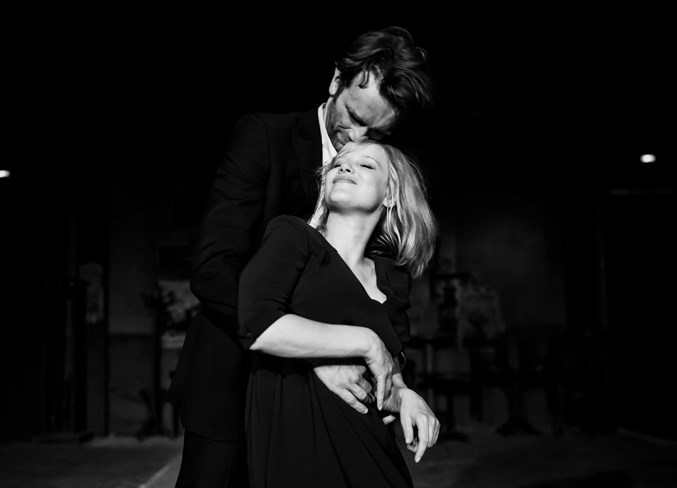REVIEW
Cold War
Stars: 4.5
Starring Joanna Kulig, Tomasz Kot, Borys Szyc, Agata Kulesza, Cédric Kahn, Jeanne Balibar, Adam Woronowicz and Adam Ferency
Directed by Paweł Pawlikowski
Written by Paweł Pawlikowski, Janusz Głowacki and Piotr Borkowski
Rated: 14A for violence, coarse language, drug use and sexual content
Runtime: 88 minutes
Now playing at Landmark Cinemas City Centre
From its bleak, grim-faced folk song on a dirt road beginning straight through to its final scene blending hope with fatalism, Cold War is a simple, stark triumph of cinema. Of course, it’s in black and white, in Polish, and set after the Second World War. The political situation was far from being settled for Eastern Europe.
For Zuzanna (Zula) Lichoń (Joanna Kulig) and Wiktor Warski (Tomasz Kot), nothing would ever be settled. She’s a singer. He’s a music director. You’d think that maybe that would be enough in common for them to build a lasting relationship. The end of the Nazi scourge didn’t result in total freedom for the land or the people. The rise of Communism brought a new reign, and new masters to serve. Zula and Wiktor do fall in love but other forces interfere with their romance. Being forced to become propagandists can stifle more than one's creative flow, y’know?
Despite the commonality, it’s not like they were really meant for each other. It seems more like a relationship of least resistance. They had to fall in love with somebody, and they were somehow the best option of what was available for each of them. Living under dictatorship perhaps was the best theme for this couple: it’s not happy and far from ideal but what else are you going to do?
This semi-biographical tale comes from the heart and mind of writer/director Paweł Pawlikowski who started with the story of his own parents, but I feel like there must have been some creative licence taken to round out such a superb and aching ode to “how things were.” Despite the music and the romance in the air, nothing in this movie feels like elation. It’s called Cold War for a reason, after all. Zula and Wiktor did not have a smooth ride. It was more like a roller-coaster, one that ends with a similar kind of wake-up bump as the train stops.
It might be a bit melodramatic at times but heart-achingly beautiful to watch in the director’s pristine vision. That’s perhaps the only thing that didn’t ring true: everything is so clean. No one has a hair out of place. Well, maybe they did but black and white has a way of heightening the art of things, dramaticizing them, enhancing the contrasts while hiding the smaller unpleasant details. This film is a loving tribute told half in song with help from conductor Piotr Borkowski.
At least it’s barely an hour and a half long. Pawlikowski took the best director prize at last year’s Cannes Film Fest, and he’s up again for an Oscar for it. It has nominations also in the Foreign Film and Cinematography categories, but it’s a shame that its writing wasn’t recognized. Joining Pawlikowski and Borkowski on the script was the noted playwright Janusz Głowacki. This was one of his last contributions to the art world. He died at the end of the film’s production in 2017.



